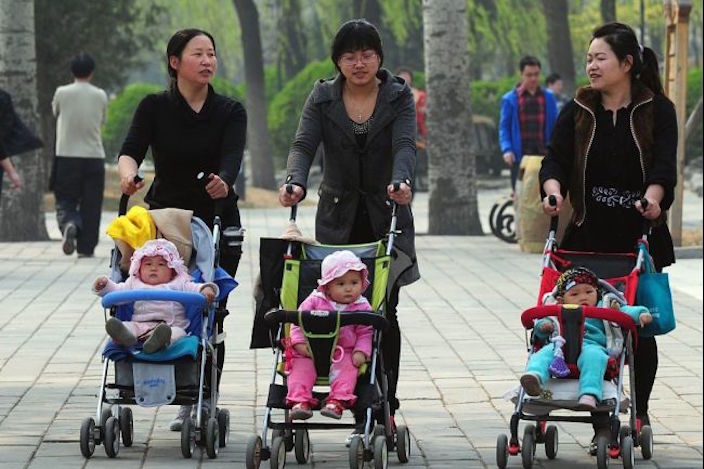With China’s recent abandonment of its One-Child Policy last October, it is safe to say that big changes are a-comin’ for the country. But how about reverting what damage has already been inflicted on Chinese citizens? The South China Morning Post reports that thirty-two people in Beijing who were fired for having a second child are petitioning the State Council to get their jobs (mostly teaching positions) back. The petitioners appealed to “the nation to re-examine our contribution in alleviating the pressure of an ageing population and to revoke the decision to take away our jobs as public institution employees.”
There are some speculations that these demands will not receive the desired response. “Unfortunately there are millions— perhaps even hundreds of millions—of people who have been victimized by China’s family-planning apparatus,” William Nee, a China researcher at Amnesty International, told Quartz in a recent interview. “While it wouldn’t be too surprising to see some isolated cases of officials who were fired due to having two children perhaps get their jobs back, I wouldn’t expect to see a comprehensive policy aimed at redressing the historic injustices caused by this policy. China has been very loath to deal with large-scale historical issues.”
Women have always borne the brunt of this policy, and in its current iteration it still affects them negatively in the job market. Even if reparations are meted to its past victims, the future holds yet more difficulties. Indeed, as China Daily reports, the very posssibility of women having a second child is making employers more reticent when hiring, as the combined maternity leaves for two babies would amount to some five to seven months. Beyond maternity leave, the article quotes an expert asserting that, in the companies’ view, women sometimes may “only fully get back to work after three to five years after having her first child.” This trend leads to rampant discouragement among women job-seekers, with a Chongqing-based survey finding that 70% of applicants saw a second child as hampering a woman’s chances, although 2/3 of employers denied the updated policy would affect their decisions. The economic slow-down is cited as the main motivation for this discrimination.
There is hope, however, as the China Daily mentions, through the policies of larger companies that seek “to attract more talent by providing support to career women.” Capitalizing on the wealth of talent disregarded by competitors, these firms embrace the choice to have a second child, which might give them an advantage in the future; although, as the economy slows further, who knows?


















